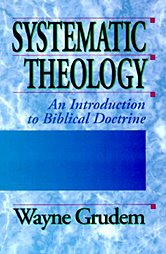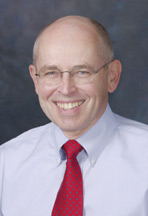We do not think in a vacuum.
Even free-thinkers are not as free as they think they are when they are thinking, or when they think they are thinking.
This is because thinking is an active exercise of the will. More importantly, all thinking begins with prior beliefs. We call these foundational assumptions control beliefs.
1 DATA, THEORY, AND CONVICTIONS
The quest for human knowledge is shaped by decisions about what is worth investigating and what presuppositions to hold in order to direct the available economic and intellectual resources for the maximum payoff. In the preface to his Reason Within the Bounds of Religion, Nicholas Wolterstorff identified two issues that all scholars face: (i) which matters to investigate and (ii) which views to hold. He develops a research program by which theory building is based on the three parameters of (i) data, (ii) theory and (iii) control beliefs.
Control beliefs (CB) may take the form of methodological, philosophical or ontological convictions. It is used to weigh theories and doctrines in science and theology. If a theory or doctrine does not fit the CB, it has to be either revised or discarded. The test is ultimately probabilistic, i.e., whatever seems to be more likely than not the case. Most of the conflicts between science and theology occur at the level of control beliefs.
Our structures of beliefs form the filter by which we determine what data can be trusted as knowledge. We all build up a set of control beliefs (CB) that anchor all other derivative beliefs (DB). In time, such beliefs become entrenched in our confessions, our public expression of our private beliefs. One may confess that God exists. Such a confession may arise from a conviction that this is so even if it cannot be proven. When challenged, we may make a commitment to buttress our convictions by making more public confessions.
2 CHRISTIAN BELIEF
Christian belief is no different from all other kinds of belief. It possesses control beliefs by which to evaluate other sources of data. Information that becomes adopted as authoritative acquires the status of knowledge. Although knowledge may be tested and challenged, sometimes even losing its status if contrary information undermines it, control beliefs are rarely toppled.
In Christian belief, the stakes are as high as they can possibly get. It extends beyond the most precious possession we all have, biological existence. For the Christian, belief in and about God concerns everlasting life. Such belief shapes our knowledge of reality and should be evident in our decisions and behavior. Unlike mere intellectual assent, the issues are live and the outcome must be consistent with the commitments.
3 FAITH AND BELIEF
3.1 Can people of faith change their beliefs?
What is fidelity to divine revelation? It is fashionable to believe that faithfulness, say; to the teachings of the Bible means our understanding of what it teaches does not change with time. If this was so, today's Christians would not need to buy new books offering fresh insights, scholars and researchers need not spend time clarifying difficult passages and preachers and missionaries need not work at studying the Bible. It would also mean that all the changes throughout church history are acts of infidelity. The Reformers would be accused of faithlessness.
Such a static view of human understanding also presumes that
(i) Knowledge of God through the Scriptures and the saints are perfect for all time
(ii) Our ancestors had intelligence that cannot or need not be surpassed
(iii) Their interpretations are perfect and need no correction, and
(iv) Correction of human interpretations of our knowledge of God is undesirable
In practice, the church does not act like this. We conduct all sorts of programs to better educate ourselves and increase our powers of understanding just as the Lord encouraged us to. Understanding is a progressive and cumulative act. God is not angry at imperfect understanding but for willful misunderstanding leading to disobedience. Our faith should be steadfast with regard to God, not to our understanding about God.
The most dangerous type of religious believers are those who stop thinking, or renewing their minds. Indeed, most heresies or wrong beliefs arise from a stubborn resistance to fresh understanding of the old data. Knowledge depends not only on data but also on the interpretation of it. Many biblical characters and leaders of the church change their understanding on learning curves. Prophets had to unlearn what they thought were correct views about God. Most regarded themselves as faithful to God when in fact they were faithful to their understanding of God. Thus Abram changed his view of God many times when he was corrected from his ways; David certainly had his share of missing God's point and Solomon continued in his father's missteps; Peter had to be stopped from undermining God's salvation plan; Paul thought he was doing God a favor by persecuting Christians; and the Corinthian church believed they were exercising freedom in Christ by endorsing 'free-love'.
It is the height of arrogance to suppose that we in this generation have no inherent mistakes regarding our understanding of God. The history intellectual progress is nothing more than discoveries of errors to be corrected until the correction itself becomes corrected. This does not mean that what we think we know about God is wrong. But it does mean that, like children, our powers of achieving understanding about God increases with learning and correction. Our approximations of knowledge get better with each passing generation, as it should. While we should not be unnecessarily ashamed of past errors, we should also not be arrogant about recent gains in understanding.
3.2. The role of extra-biblical knowledge
Christian belief and faith welcomes extra-biblical resources to complete our understanding of reality (e.g. The Pilot Syndrome: On a plane, even a priest prefers a qualified pilot to one who shares his theological views. We need more than knowledge from the Bible to survive.) The Bible is not a comprehensive guidebook for everything we need for living. It is a special message from God with frameworks by which to build a worldview to assess how we are doing. While the Bible is a special inheritance from believers who came before us, it is a relatively recent resource. Most of the people who worshipped God had no access to the Bible. Less than two thousand years ago, no one in the world had the New Testament. Before the public ministry of Jesus, no one had his teachings to go by. Before Moses was called into service, there would have been no mosaic teachings and laws from God. The faithful at the time of Abraham, and Isaac, and Jacob and Joseph, did not have the Old Testament. St. Augustine wrote De Doctrina Christiana that Christians ought to seek legitimate uses of extra-biblical sources because all knowledge ultimately comes from God. This is not to diminish the value of the Bible, but to draw attention to the fact that unlike the Muslims, we are not really “People of the Book”. We are “People of the God who gave us the Book”.
4 CONTROLLING CONTROL BELIEFS
(Renewing our minds)
Can control beliefs change? Yes. Romans 12: 1-2 speaks of the renewal of our minds. Paul refers to the shaping of our control beliefs so that it is subservient to God's will. In this passage, Paul does not say we are to conform to God's will because God is more powerful. Rather, when we reflect deeply and honestly by renewing our minds back to the state when we first gave our hearts (minds) to God, we can test and discern the perfect will of God.
Christians have the privilege of having the help of the Holy Spirit as our personal trainer. The Spirit's primary function with regard to Christians stated in John 16: 13, is to sustain the fidelity of our (control) beliefs by guiding us into all truth and declare to us “the things that are to come”. In John 16: 8, Jesus taught that the Helper (Advocate) will come to convict the world of sin, of righteousness, and of judgment. It is this convicting power of the Holy Spirit which will safeguard Christian control beliefs if we let it. It is with this divine promise that we dare to confront the excesses of postmodern uncertainty. Yet the paradox of free will given to us means we can undermine our own advantage by refusing to submit to the Spirit. It is only by voluntarily and intentionally permitting the Holy Spirit to control our control beliefs can we begin our quest for a Christian mind.
 Learning as a group enables us to leverage on each other's insights and perspectives. It is also more fun and allow us to bounce off ideas.
Learning as a group enables us to leverage on each other's insights and perspectives. It is also more fun and allow us to bounce off ideas.  We'd be starting our discussion on "What is systematic theology? Why study it? And how?" Normally a conducive study group should not be too large so we are limiting the number of participants. But dun worry, there's always the 2006 'workshops' starting in February...
We'd be starting our discussion on "What is systematic theology? Why study it? And how?" Normally a conducive study group should not be too large so we are limiting the number of participants. But dun worry, there's always the 2006 'workshops' starting in February...













